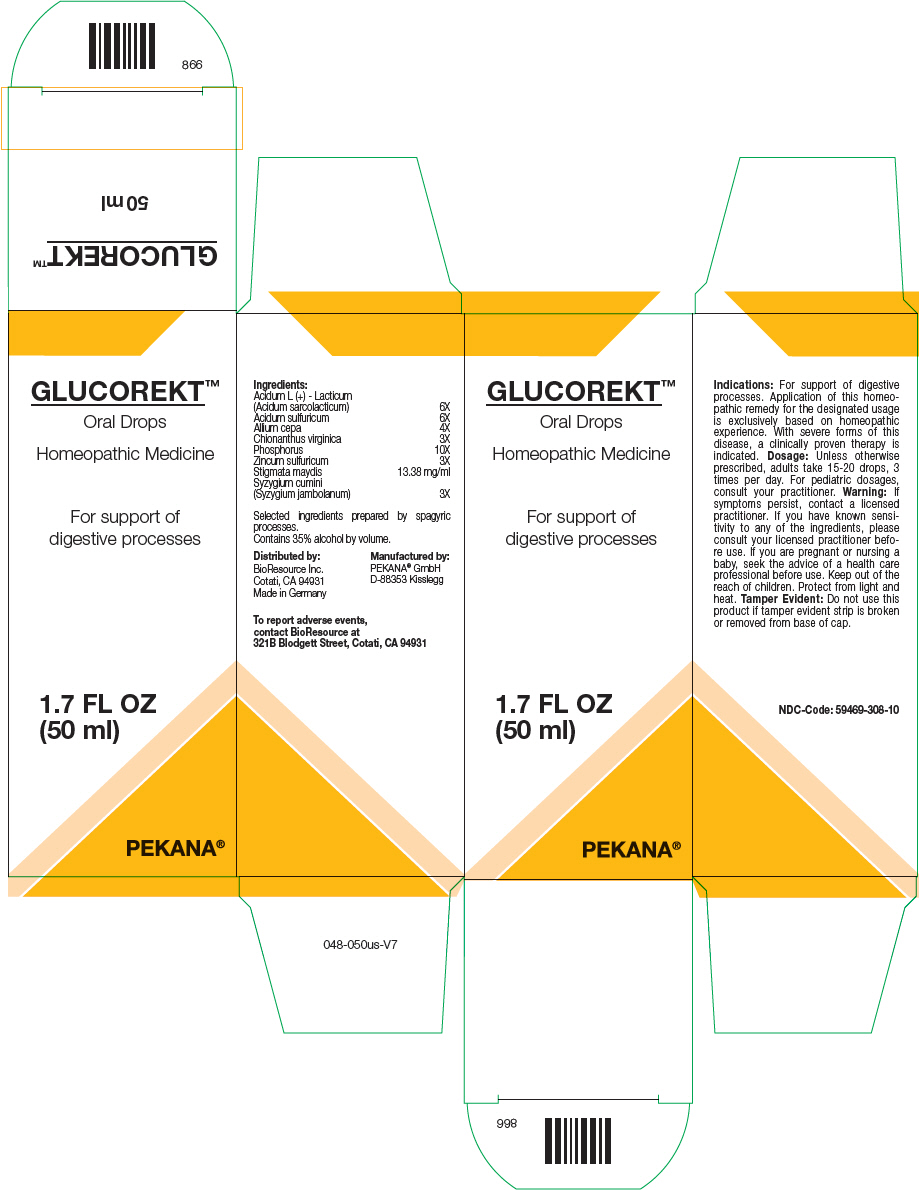Glucorekt while Breastfeeding

What is Glucorekt used for?
Purpose: For support of digestive processes. Application of this homeopathic remedy for the designated usage is exclusively based on homeopathic experience. With severe forms of this disease, a clinically proven therapy is indicated.
Is Glucorekt usage safe while breastfeeding? If a lactating mother is using it can there be any effect on growth or development of infant?

Glucorekt Breastfeeding Analsys
Lactic acid, dl- while Breastfeeding
SafeCAS Number: 50-21-5
A natural product found in milk that may increase their concentration after exercise which is not harmful to the infant. At latest update published were not found data on excretion in breast milk.Because the small dose used and poor absorption to the plasma of most topical dermatological or vaginal preparations, make it unlikely the pass of a significant amount into breast milk. Do not apply on the nipple or areola.
Onion while Breastfeeding
SafeCAS Number: 8054-39-5
At latest update no published data on excretion into breast milk were found. It is a widely used plant in preparing food and also in Phytotherapy as herbal extracts or essential oil. Given its lack of toxicity, a moderate consumption as herbal-based medicine during lactation would have low or no risk. Its consumption as a food is devoid of risk. The plant's bulbs are used which contain fructans, polysaccharides, flavonoids (quercetin glycosides), saponins, sterols and sulfoxides. Properties that were approved by the Commission E of the German Ministry of Health are: antibacterial, fat-lowering, antihypertensive, platelet aggregation inhibitor. It is used to treat loss of appetite and topically for bedsores and contractures. It has been used as a topical treatment for pain or inflammation of the nipple.There is insufficient evidence that would suggest ingestion of onions by the mother may be a cause of colicky pain or breast milk rejection by the infants.
Zinc cation while Breastfeeding
SafeCAS Number: 7446-20-0
Zinc (Zn) is an essential element for nutrition. It is present in many foods.Recommended daily allowance of Zn is 8 to 15 mg. (Moran Hall 2010). Millions of people worldwide are Zn-deficient.It is used as a treatment for Wilson's disease and Acrodermatitis Enteropathica. Zn is involved in the regulation process of lactation (Lee 2016).Pasteurization of the milk does not affect the concentration of Zn and other trace elements (Mohd Taufek-2016). The average concentration of Zn in breastmilk is 4 to 16 mg / L (Picciano 1976, Hannan 2005, Dórea 2012) which is independent of plasma levels and maternal daily intake (Krebs 1995, Chierici 1999, Hannan 2009).Intestinal absorption of zinc is almost doubled during pregnancy and lactation (Fung 1997).Zinc levels in the infant are dependent on Zinc levels in the breast milk (Dumrongwongsiri 2015)With a varied and balanced diet, an extra intake of minerals is not needed. Excessive intake of Zinc may cause gastrointestinal problems and Pancytopenia (Irving 2003).
Glucorekt Breastfeeding Analsys - 2
Phosphorus and Breastfeeding
SafeNext to calcium, phosphorus is the most abundant mineral in the body, making up about 1% of total body weight. Calcium, which gives strength to bones and teeth, needs to be combined with another mineral, such as phosphorous, to become stabilized before it can be effective.
Phosphorus also helps to release energy from food as it plays an important role in the metabolism of carbohydrate, fat and protein. Phosphorus is naturally found in many food sources and phosphorus supplementation while breastfeeding is mostly safe.
You can easily get all the phosphorus you need from a well-balanced diet (even though most prenatal vitamins dont contain phosphorus). For example, 2 cup of yogurt provides nearly all your phosphorus for the day.
Warning: Consuming high doses of phosphorus for a short time can cause diarrhea or stomach pain. The long term over-consumption of foods high in phosphorus can deplete calcium resources and lead to reduced bone mass, which means that bones are more likely to fracture.I already used Glucorekt and meanwhile I breastfed my baby should I be concerned?
Due to high dilution of ingredients in homeopathic medicines they do not create much problem for baby. Glucorekt is a homeopathic medicine and if your baby does not have any abnormal symptoms then there is nothing to worry about. Be careful with too much usage of ethanol based homeopathic medicines during breastfeeding.
I am nursing mother and my doctor has suggested me to use Glucorekt, is it safe?
Homeopathic medicines are usually safe in breastfeeding and if Glucorekt has been recommended by doctor then there should be no concern about its usage in breastfeeding.
If I am using Glucorekt, will my baby need extra monitoring?
Not exactly.
Who can I talk to if I have questions about usage of Glucorekt in breastfeeding?
US
National Womens Health and Breastfeeding Helpline: 800-994-9662 (TDD 888-220-5446) 9 a.m. and 6 p.m. ET, Monday through Friday
UK
National Breastfeeding Helpline: 0300-100-0212 9.30am to 9.30pm, daily
Association of Breastfeeding Mothers: 0300-330-5453
La Leche League: 0345-120-2918
The Breastfeeding Network supporter line in Bengali and Sylheti: 0300-456-2421
National Childbirth Trust (NCT): 0300-330-0700
Australia
National Breastfeeding Helpline: 1800-686-268 24 hours a day, 7 days a week
Canada
Telehealth Ontario for breastfeeding: 1-866-797-0000 24 hours a day, 7 days a week
